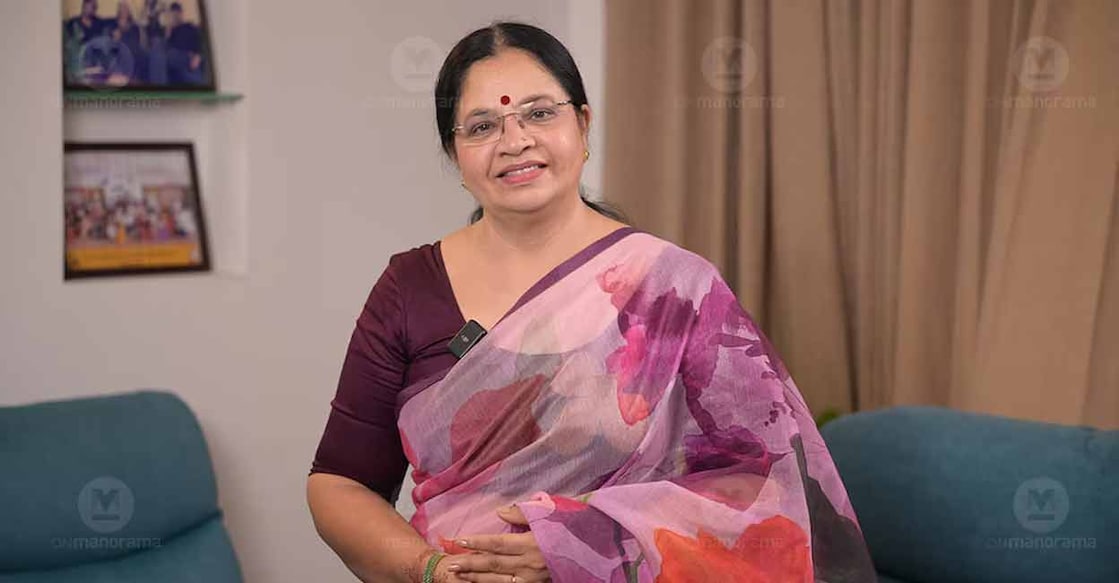Women's safety in cinema: Single out offenders, says dubbing artist Bhagyalakshmi

Mail This Article
Following the 2017 attack on an actress in Kochi, the Women in Cinema Collective (WCC) demanded an investigation into the issues faced by women in the film industry. In response, the state government appointed a committee in July 2017, which submitted its report in December 2019. Despite various pressures, the report remained undisclosed until the Culture Department released it in the past week. The Hema Committee Report, upon its release, sparked significant controversy by highlighting not just the dignity of women working in cinema, but also raising serious questions about the ethical values of Kerala's cultural landscape. In the wake of the report's publication, dubbing artist Bhagyalakshmi shared her thoughts with Manorama Online’s 'She Talks'.
Do not see cinema in isolation
The Hema Committee was originally established to study the plight of women in the film industry. However, when the report was finally made public, the way it was portrayed in the media evoked both fear and sadness. This is because many actresses have worked hard and showcased their talent to get where they are today. But when statements like "they didn't get opportunities in Malayalam cinema without compromising" are used, it affects all women in the industry. What I want to say is that wherever there are women, there is exploitation. This is something that happens in every profession. The difference in cinema is that it receives more attention and scrutiny.
In reality, not all men in the industry are betraying women in this way. There are a few individuals who are responsible for such actions. And, they exist at all levels, from the lowest to the highest. However, I often tell women in the film industry that wherever they go, there will always be some people looking to exploit. There are good people too, but we must be cautious. Sometimes, someone who appears trustworthy could turn out to be the biggest fraud. That is why I always emphasise the importance of being careful and vigilant.
In my early days in cinema, some people did have negative experiences. There were those who stood up against such issues even then, but naturally, they were sidelined. However, if they were talented, they would eventually make a comeback. During that time, many individuals entered the film industry due to family responsibilities - they needed to support their families or take care of their siblings. But by the time I began dubbing for heroes, actresses like Shobana, Revathi, Karthika, Parvathy, Urvashi, and later Samyuktha were all well-educated and entered the industry with strong confidence. They were financially secure and entered cinema out of a genuine passion for the art. To lump them together and insult them with such statements feels deeply wrong to me.
The discussion around this topic seems to be leading to a generalisation that insults all women in the film industry. This isn't what we need. A few individuals' misconduct and some mistakes have led to misunderstandings and false perceptions. Some young people might start believing that this is the norm in cinema—that this is how the industry operates. I've told them before, that if you are not talented, you would not come up, in spite of whatever compromises made.
Cinema is not about one director or actor. There are countless directors and producers out there and not all of them are the same. However, society tends to look at the industry with a certain negative perception. Think about it—there's a significant amount of poison being spread into society through these generalisations. How many producers' families might now be wondering, "Is this how things really are?" How many directors' families or the families of actresses might be thinking, "Is this what it takes to enter the industry?" We're unintentionally insulting so many people. The Hema Committee Report was meant to protect or help women in the industry, but instead, it has led to a situation where we are more focused on getting attention, going viral, and boosting ratings. It is important to consider the impact this has on those who are unfairly affected by such generalisations.
Actor-centric approach
The decision to cast a leading actress is no longer solely in the hands of the producer or director. Today, it is often the male lead who suggests which actress should be cast and they have significant influence over these decisions. Some established artists may insist on artistes like KPAC Lalitha because they have a sync.
It is difficult to judge whether this is a good trend. The cinema of today is not the same as it was when Prem Nazir was around. Back then, Prem Nazir and Sathyan did not have fan clubs. When actors like Sukumaran or Soman were performing, there were no fan clubs either. These actors never dictated who should be cast; the creation of a film was entirely in the hands of the director. Even producers today don't have the same level of control. The whole atmosphere changed when fan clubs emerged and the media started giving these stars specific titles. This shift is not the fault of filmmakers — cinema has increasingly become centred around the actor.
New generation
But even that has changed now. The new generation has arrived and they work collaboratively to make films. Vineeth Sreenivasan recently mentioned that intended to step out of his comfort zone and work with new faces in his films. Until now, Vineeth had been making films with his friends. As a result, these directors don't need to worry about traditional theatre marketing strategies like before. The new generation of filmmakers do not concern themselves with aspects like the fan following of actors. It is all about the group effort—they focus on creating a film together as a team.

